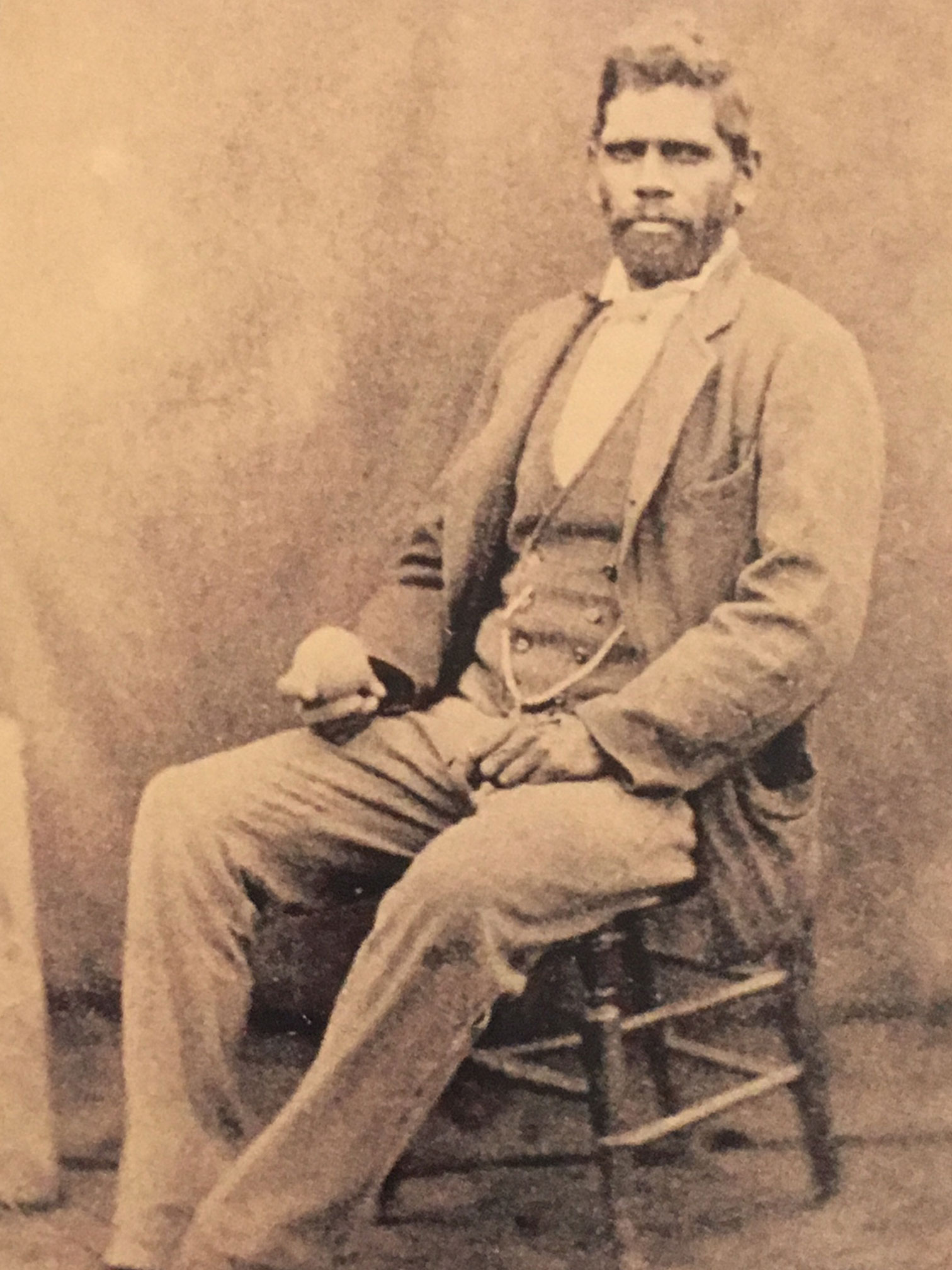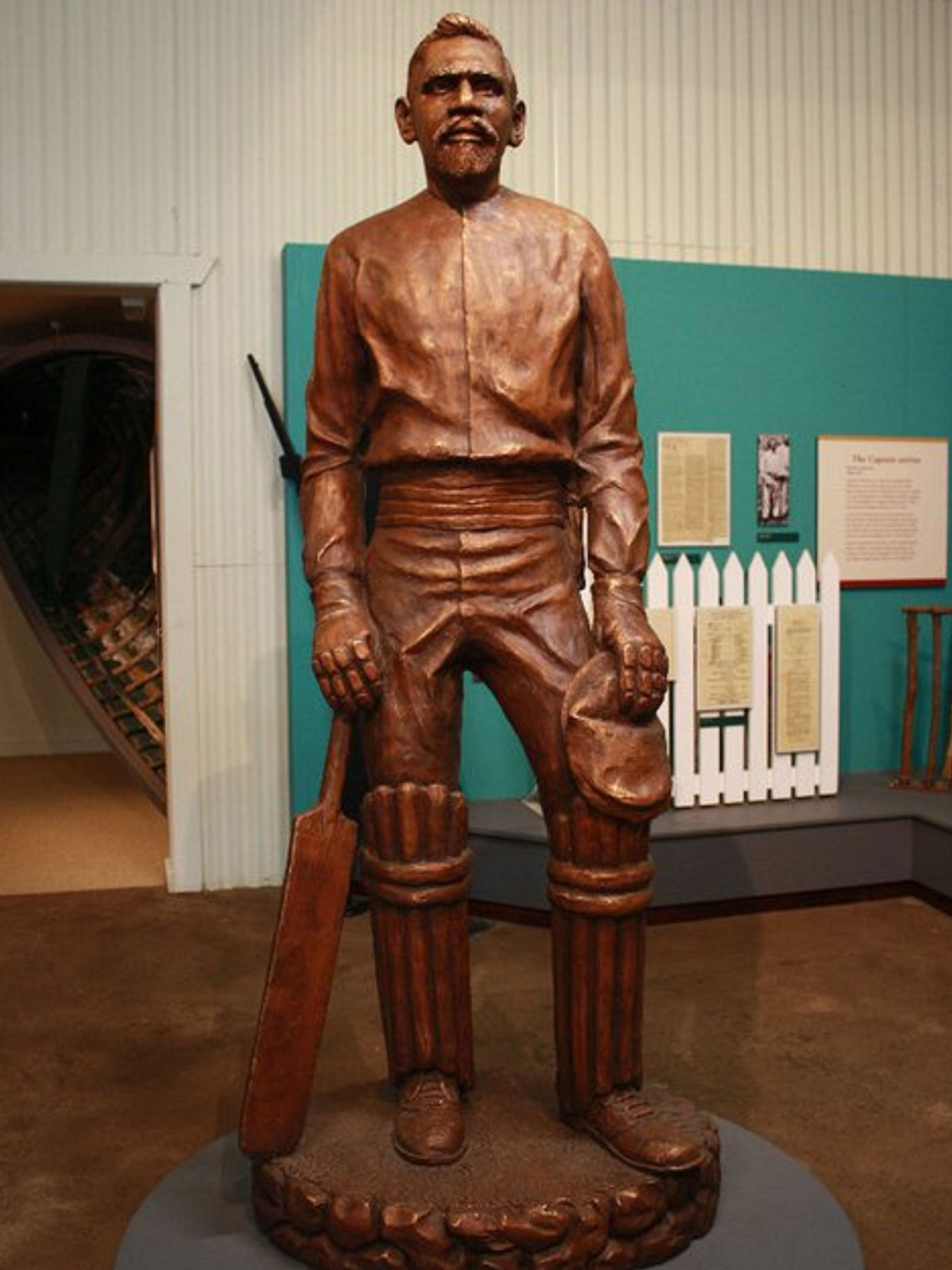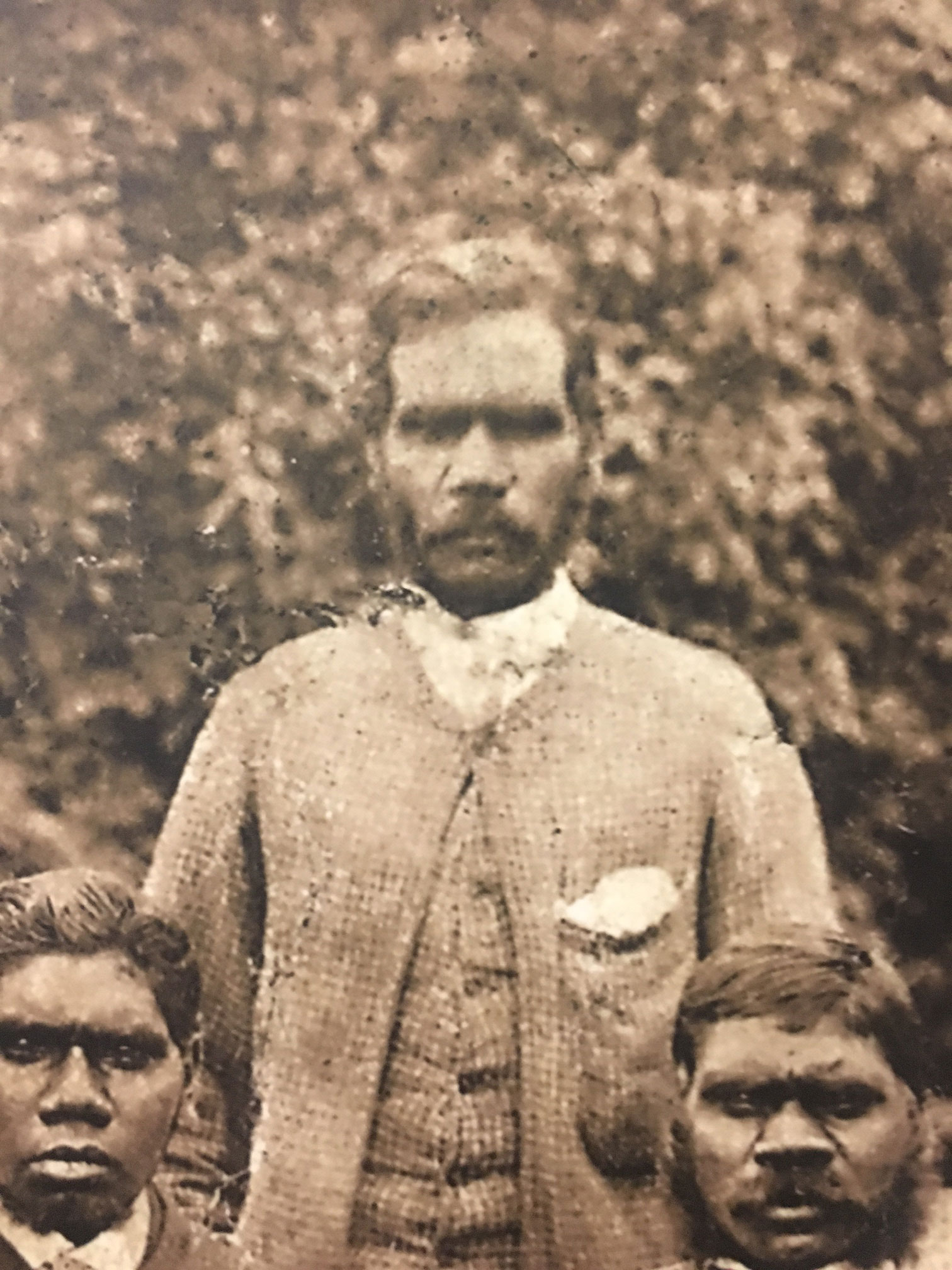 UNAARRIMIN – JOHNNY MULLAGH
UNAARRIMIN – JOHNNY MULLAGH
c. 1843 – 1891
– played 45 matches on the 1868 tour of England
– scored 1698 runs at an average 23.45
– highest score 94 against Reading
– bowled around 1877 overs – 831 maidens and 245 wickets at an average 1/10
Johnny Mullagh’s traditional name was Unaarrimin. His name, Johnny of Mullagh, was later shortened to Johnny Mullagh, named after the station where first worked. He was the star all-rounder of the 1868 Aboriginal cricket team, which toured England and became Australia’s first international touring team recognised by the Sport Australia Hall of Fame in 2002.
A member of the Jardwadjali people of the Wotjobaluk nation, Unaarrimin-Johnny Mullagh is thought to have been born on or near the country where Mullagh Station was established, about 10 miles north of Harrow. He learned to play cricket while working on the adjoining Pine Hills Station, where he was taught the finer points of the game by David Edgar’s son, (who had returned from Scotch College in Melbourne with the latest cricket techniques) and the station tutor, William Burville.
Unaarrimin- Johnny Mullagh, played 47 matches on the 1868 England tour, scoring 1698 runs at an average of around 23.45 on pitches that were often treacherous. Spectators considered him the equal of any English batter. He also bowled 1877 overs, 831 of which were maidens and took 245 wickets at 10 apiece. If this weren’t enough, he would occasionally don wicket-keeping gloves, achieving four stumpings. Few contemporary cricketers better merited the title of all-rounder.
After returning from the 1868 tour, Unaarrimin and Yellanach-Johnny Cuzens played for the Melbourne Cricket Club until illness compelled them to return to their country. Despite numerous invitations, Unaarrimin largely stayed close to home, however, he did represent Victoria against Lord Harris’s English touring side in 1879, top scoring with 36 in the second innings. He was then about 38 years old, and instead of going in first-wicket-down as he did for his club, batted at nine and 10. Lord Harris described him as a “very elegant bat”.
In 1884, Unaarrimin was selected to play in a South East of South Australia team to play in a competition played on turf wickets in Adelaide. On the Adelaide Oval against the Norwood Club captained by the legendary George Giffen, Unaarrimin carried his bat and scored an impressive 48 runs.
Until the 1890 season, just one year before his death, Unaarrimin was a respected member of the Harrow Cricket Club, playing in the regional Murray Challenge Cup competition that played against Coleraine, Hamilton and Casterton. Harrow dominated the competition in the 1880’s, due mainly to the efforts of their skilful all-rounder, Unaarrimin.
Nineteenth century Australia witnessed severe discrimination against indigenous peoples. Many of those chosen to tour England were left to obscure futures and early deaths once the venture had concluded. Tragically, one player, Brippokoi-King Cole, died in Guy’s Hospital, London on the 24th June from Tuberculosis and was buried at Victoria Park Cemetery, Gravesend.
Unaarrimin was both an independent person and a passionate advocate of indigenous rights, refusing to dwell on state-controlled reserves. His political stance was revealed during a game at Apsley, when, as the players went to lunch, a white participant asked, “What about the nigger?”. The captain replied, “Let him have his dinner in the kitchen; anything is good enough for the nigger”. Unaarrimin refused to eat in the kitchen and sat outside the hotel in protest.
Maintaining his independence and dignity to the end, Unaarrimin spent his last days living by a waterhole near Pine Hills, where he was still employed.
He died on Friday August 14, 1891, and was laid to rest in the ’paupers row’ at the Harrow Cemetery. The Hamilton Spectator described him as “the (W.G.) Grace of Aboriginal Cricketers” and went on to say ‘The funeral of Johnny Mullagh, the aboriginal cricketer, took place in the afternoon, August 16……..the Harrow Cricket Club made all the necessary arrangement for a respectable interment.” At this service the Rev. J. Kirkland spoke of him as “a noble type of an almost extinct race” and announced that a fitting monument be raised to honour his memory. This monument still stands overlooking the Johnny Mullagh Oval in Harrow, at the spot where a pine tree once stood, the pine tree Unaarrimin would rest under whilst playing cricket.
In 2020, Cricket Australia introduced the Mullagh Medal, awarded to the Player of the Match of the Boxing Day Test, a fitting tribute to our great cricketer. In 2021, Unaarrimin was inducted into the Australian Cricket Hall of Fame, but in Harrow, his legend lives on.




